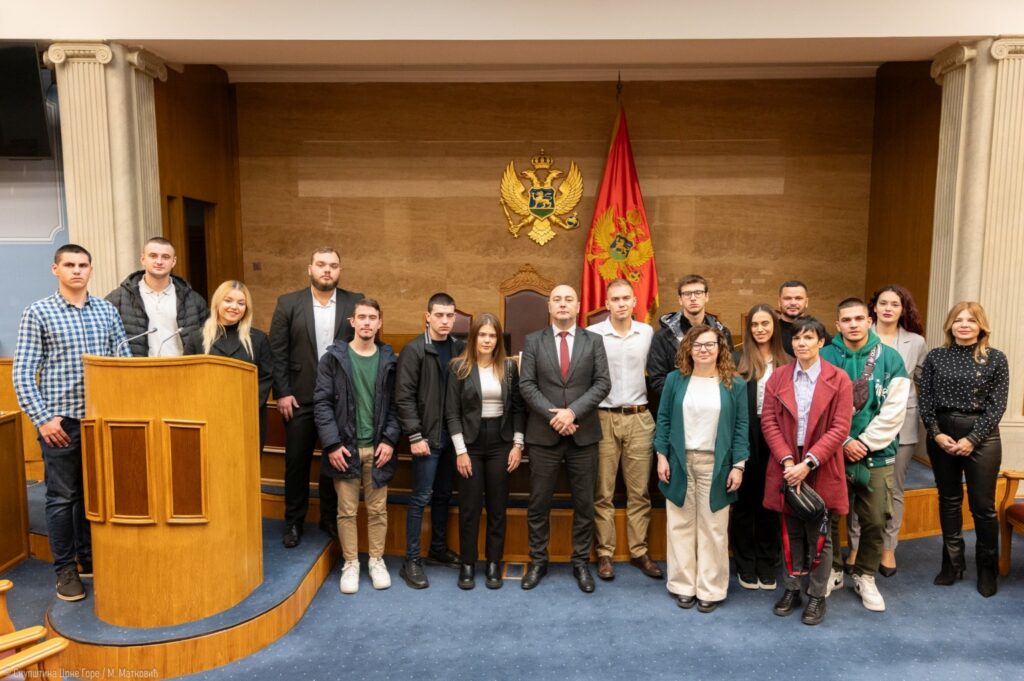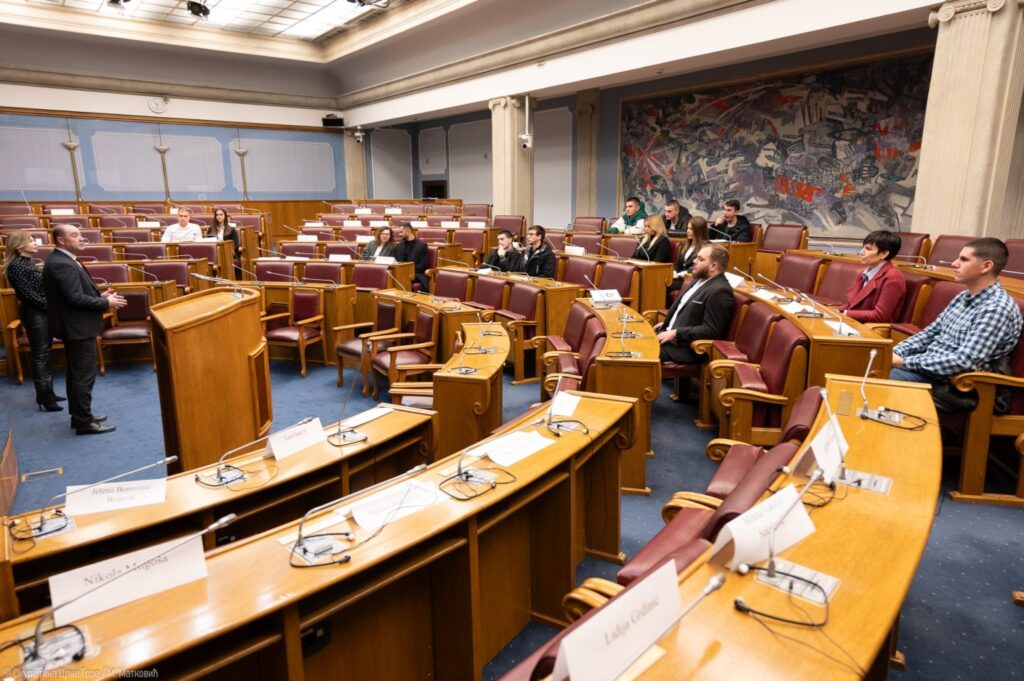Within the two-year Erasmus+ project titled “Critical Thinking and Participation as a Foundation of Democracy in Europe,” participants engaged in an evaluation meeting in Podgorica from December 4 to 9.
The visit to the Civic Movement URA on December 6, led by Ana Novaković Đurović, provided insights into URA’s work, particularly in involving youth in political processes. This interactive session included discussions on URA’s role, positive changes post-2020 power transition, and contributions to two governments from 2020 to 2023. The visit concluded with Dritan Abazović, URA’s president, enriching the experience by addressing the participants.

On December 6, participants explored youth participation in democratic processes through NGOs at the NGO Center for Youth Education (COE). Hosted by Jugoslav Radović, COE’s executive director, the session emphasized the European Youth Card Association (EYCA) and its impact in providing access to information, mobility, and informal education for youth.
The meeting on December 7 at the Government of Montenegro, hosted by Dragoslav Đađo Šćekić, focused on the government’s initiatives to improve the position of youth. Šćekić highlighted the significance of the European Youth Card in facilitating youth access to various benefits.
Additionally, visits to the Parliament of Montenegro and the Capital City Assembly on December 7 provided insights into institutional frameworks, parliamentary operations, and the specific political engagement of women in Montenegro. The discussions underscored the importance of inclusive political environments for youth and women.

The participants also visited the Wine Cellar Sipčanik on December 8, providing a cultural experience by exploring Montenegro’s rich wine tradition and tasting exquisite wines from the renowned company 13. jul Plantaze. The tour covered the history, functioning, and wine production process of the cellar, concluding with a tasting of two key Montenegrin wine varieties, Krstač and Vranac.
These diverse visits contributed to a comprehensive evaluation of the project, fostering a deeper understanding of Montenegro’s political system and strengthening connections between project participants and relevant institutions. Overall, the participants expressed satisfaction with the productive visits and thanked the hosts for their warm welcome.
